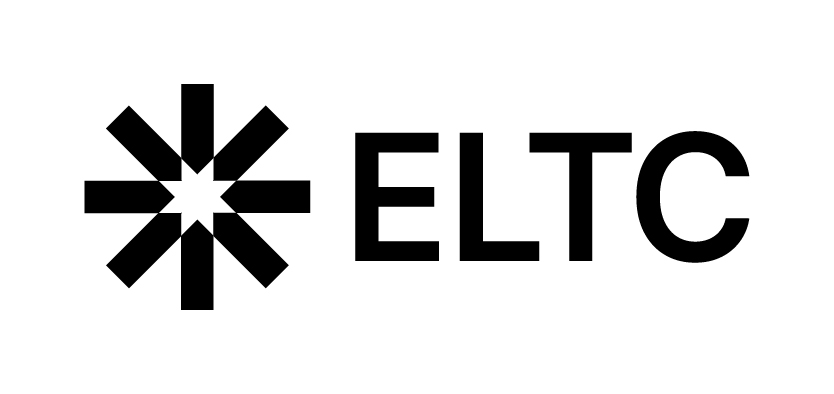
Managing and Resolving Shareholder Disputes
- Νομοθεσία, Νομική & Δικηγόροι
ΠΕΡΙΓΡΑΦΗ
With so many high-profile cases currently pending in the courts, it is anticipated that more and more shareholder suits are on their way to court.
Law firms and consultants are preparing to meet the growing demand. The opportunity, however, is fraught with dangers and turmoil: rapidly evolving case law, number of claimants, conflicting jurisdiction, new products and competition are some of them.
To deliver the best results to their clients and navigate successfully in this increasingly complex legal field, professionals need to be equipped with the latest tools and remedies available within our legal framework.
The course is designed as a practical course to help lawyers manage the legal minefield in this area of law.
ΣΚΟΠΟΣ ΣΕΜΙΝΑΡΙΟΥ
Shareholder disputes: Top Tips
Have a clear shareholders agreement. Make sure you have a properly drafted shareholders agreement. It should set out the shareholders’ rights and obligations, as well as the procedure to follow if a dispute arises. If you don’t have a shareholders agreement and a dispute arises, you can’t force the other party to the negotiating table. In this situation, a deadlock between shareholders can arise, which is likely to have a very negative impact on the business. If you do have a shareholders agreement, make sure you read it and comply with it.
Start succession planning early. Shareholder disputes often arise if there is a breakdown in the relationship between two or more shareholders, or if control of the company is handed down from one generation to the next. Early succession planning and regular communications between shareholders and potential future shareholders will minimise the chance of a dispute arising
Establish clear policies on distributing profits, salaries or consulting fees. It’s a good idea to have clear policies on distributing profits and paying salaries or consulting fees. If you do have these policies, make sure you comply with them. If you don’t have these policies, it’s a good idea to discuss these issues with your company accountant and put policies in place. If you follow these steps, it will be much harder for a disgruntled shareholder to make an allegation about inappropriate payment of dividends, salaries and consulting fees.
Establish clear leave policies. In private companies, disputes can arise when one shareholder feels like he or she is working harder than another. At the same time, it is important for all shareholders to have the ability to take leave when it’s needed. It’s a good idea to have clear policies about leave (annual leave, long service leave, parental leave, carer’s leave etc) and to comply with those policies.
Understand the risk of exclusion from management. A common allegation in shareholder disputes is that the shareholder brings the claim that he or she has been excluded from the management of the company by another shareholder or shareholders. Exclusion from management can take the form of excluding from directors’ meetings (assuming all shareholders are directors) or being excluded from key decision-making for the business.
Always put the interests of the company as a whole ahead of your own interests. Directors have a duty to act in good faith and in the best interests of the company. Disputes can arise when a director starts putting their own interests first, which is often at the expense of the company and shareholders as a whole. There must always be a commercial reason for a transaction - for example, you should avoid the temptation to loan funds to another business if there’s a chance the funds won’t be repaid, and the company loaning the money will therefore be disadvantaged. Before entering into any related party transactions, always ask yourself: is it in the best interests of the company as a whole?
ΣΕ ΠΟΙΟΥΣ ΑΠΕΥΘΥΝΕΤΑΙ
Must have a basic understanding of the corporate structure
- Lawyers,
- Corporate administrators
- Compliance officers/assistant compliance officers
- Police officers
- Business owners
- Start-up entrepreneurs
- Banking sector employees
- Accountants/auditors and bookkeepers.
- Shareholders
ΠΕΡΙΣΣΟΤΕΡΕΣ ΠΛΗΡΟΦΟΡΙΕΣ
Course Content
MODULE 1: Types of shareholder dispute
● What is a shareholder dispute?
● The most common examples of shareholder disputes
● How to resolve them?
● Looking at the shareholder's agreement
● Other methods for resolving shareholder disputes
● Pre-emptive strikes- taking steps early
● Case studies
● Questions-Practical exercises
MODULE 2: How to effectively manage a shareholder dispute
● Proposing resolution at a general meeting to redress the situation
● Appointment of a director or other advisor
● The removal of a director
● The negotiation stage
● The mediation stage
● Buyout by the company, one of the parties or an external party
● Possible scenarios
● Case studies
● Questions-Practical exercises
MODULE 3: Litigation-very much a last resort
● Court action: what are the steps?
● Interim Orders-the most effective remedy
● The types of Interim Order Cyprus Courts can issue:
● Freezing orders (Mareva injunctions) on a worldwide level
● Injunctions preventing acts or events from taking place
● Discovery and Tracing Orders
● Appointment of Interim Receiver or Administrator
● Garnishee Orders
● Search Orders
● Interim orders in aid and/or support of Court or Arbitration proceedings conducted or to be conducted in Cyprus or abroad.
● The procedure and the drafting process of the Interim Orders
● Recent judgments and their importance today
● Orders for dissolving or winding up a company:
● What are just and equitable grounds for a winding-up petition?
● Who can present a winding-up petition on Just and Equitable grounds?
● Can Minority Shareholders Wind Up a Company?
● When Might a Just and Equitable Winding Up Petition be presented?
● How does the court reach a decision?
● Being threatened with a winding-up petition?
● Minority shareholder unfair prejudice petition
● What is unfair prejudice and oppression?
● Court powers when deciding petitions
● Who should buy out whom?
● Derivative claim
● Corporate claims and the pursuance of derivative actions by minority shareholders
● The Foss v Harbottle case and the ‘proper plaintiff’ principle
● The operation of derivative actions in common law
● Case studies-specimens-practical exercises
Course Methodology
Live distance learning via Zoom. This method enables the instructor to continuously assess the receptivity of the trainees and to be constantly updated accordingly. During the training, appropriate techniques will be developed and assist the subject of training. The lecture and the regular discussion challenge are the main pillar of the training techniques in this program
Trainer
Mr. Constantinos Clerides, Lawyer
Αναλυτικό Κόστος Σεμιναρίου
- € 130.00
- € 0.00
- € 24.70
- € 130.00
- € 154.70
ΠΡΟΓΡΑΜΜΑ ΣΕΜΙΝΑΡΙΟΥ
Δευτέρα - 28 Νοε 2022
Ώρα
17:00 - 20:00
Τοποθεσία:
OnLine Virtual Classroom
Δευτέρα - 05 Δεκ 2022
Ώρα
17:00 - 20:00
Τοποθεσία:
OnLine Virtual Classroom
Δευτέρα - 12 Δεκ 2022
Ώρα
17:00 - 20:00
Τοποθεσία:
OnLine Virtual Classroom
 Ελληνικά
Ελληνικά  English
English



 Ελληνικά
Ελληνικά
 9 ώρες
(
3 μέρες
)
9 ώρες
(
3 μέρες
)















